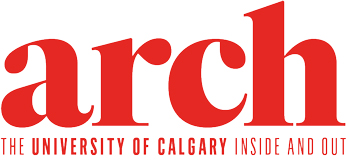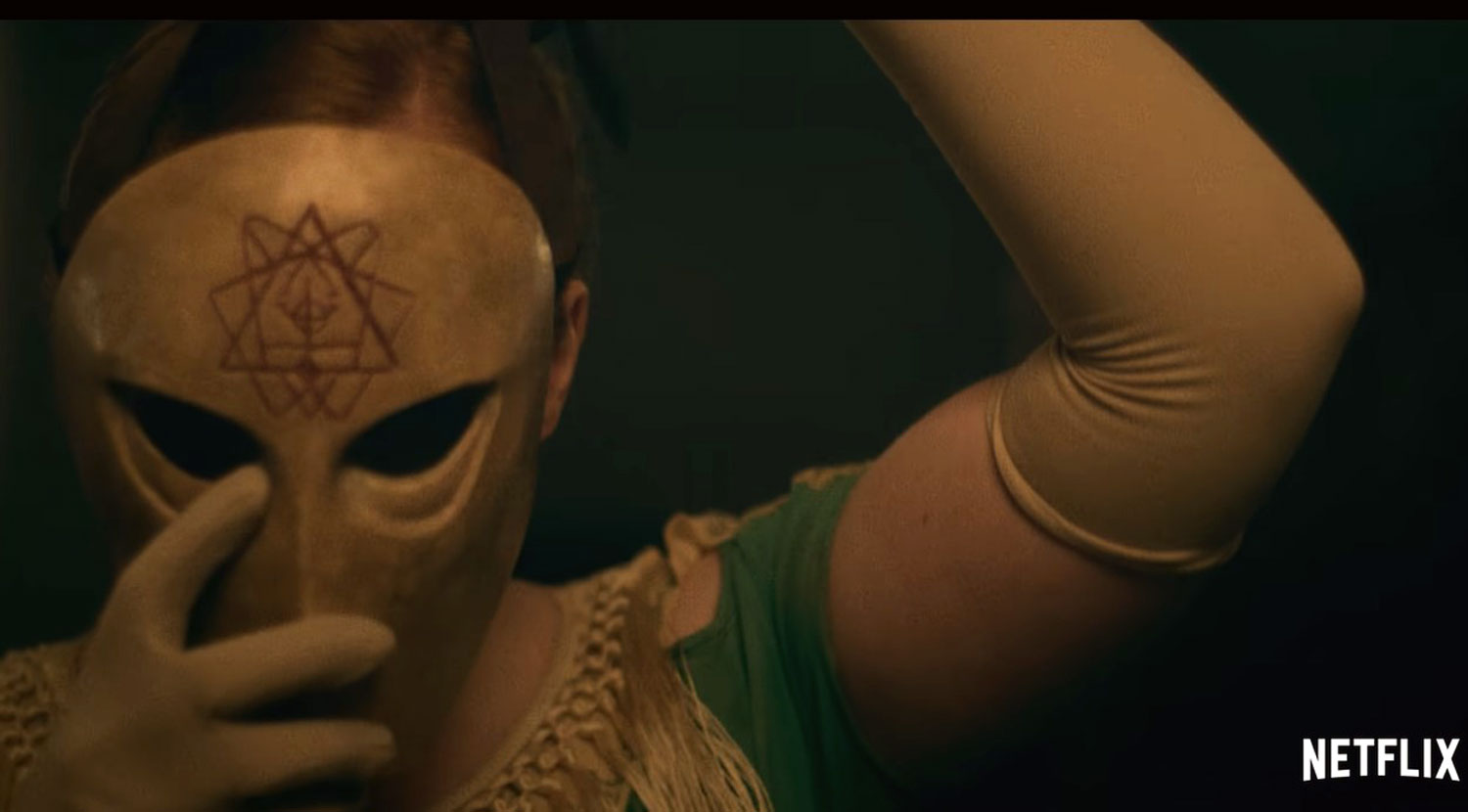Written by Jaelyn Molyneux, BA’05
A small crowd gathers around a statue in a mysterious mansion. At the centre, a woman begins a ritual. It’s haunting and a little creepy, like many scenes in Netflix’s Archive 81 that have led to this moment.
The character’s words are subtitled so you know what she’s saying, but it’s difficult to tell what language she’s saying it in. That’s because the language is new.
It’s a constructed language or “conlang” developed by Dr. John Scott, PhD. Klingon from Star Trek, Na’vi from Avatar and Dothraki from Game of Thrones are examples of constructed languages.
Scott is currently an instructor of German at the University of Calgary’s School of Languages, Linguistics, Literatures and Cultures. But he previously taught a course in conlangs at Indiana University, which is what led Netflix to reach out to him in December 2020 to create a language for a new supernatural horror series, which debuted on the streaming service in January 2022.
Archive 81 follows a man restoring damaged videotapes from 1994. He begins restoring the work of a documentary filmmaker who was investigating an obscure cult called the Baldung Witches. That cult needed a language for its rituals — so Scott created one.
To create a language, there needs to be social, artistic and historical elements to build on. The showrunners gave Scott a starting point.
“They wanted something that was based in Old Saxon, the historical language which was spoken 9th century-ish, but they wanted it to be its own thing,” says Scott. “I created a fictitious descendant of Old Saxon.”
His challenge was to strike a balance between changing elements of Old Saxon to create a new dialect, and not changing so much that it isn’t believable as a Germanic language from that time and place.
“I tried to design the language in such a way that it could fit in that part of Europe in about that century, either as a spoken language or as a liturgical language used for specifically magic purposes,” says Scott.
Scott studied Germanic poetry as part of his graduate studies and suggested that the element of poetry be added to the language. Alliteration, vowel harmony and the Germanic long line for stress alignment were all introduced as language considerations.
To keep track, Scott developed an etymological dictionary. The spreadsheet tracked, among other things, the original word and where it came from, related words in other languages, and sound changes. Those led to the resulting new word. From there, he layered in grammar, which also had to be adjusted and invented. And, because he was writing for a poetic end point, he needed synonyms so he had options for swapping words to match that structure.
“One of the biggest challenges with conlangs is to make sure they feel like they have the structure of an actual language,” says Scott. So far, Scott’s meticulous work has held up against online fans speculating on the origin of this new language.
In Archive 81, the language of the Baldung Witches is spoken as well as written. Scott had to develop the conscript (a.k.a. its alphabet). Keeping with the aesthetic of the show, the conscript is based on Ulfila’s Gothic alphabet used to translate parts of the Bible. The forms of the letters resemble manuscripts from the Gothic Bible, but no character is quite the same and the functions of the alphabet have been changed for the Archive 81 conlang.
It wasn’t enough for Scott to just hand over a language to the showrunners. The actors needed to learn how to speak it.
“I spent hours recording the texts line by line, group by group, and indexing them all so the actors could find any word or line they needed,” says Scott. “I had to learn to pronounce the language convincingly.”
While it is far more complex than Scott’s first conlang — a simple naming language for the game Dungeons & Dragons he created as a teen — the Baldung Witches language builds on his ongoing interest in role-playing games, history, imaginary cultures and how they are used in media.
“This idea of a fictitious alternative history for a small group of people with supernatural powers in medieval Europe was compelling,” he says.
Scott’s conlang appears in the last three episodes of the first season of Archive 81, streaming now on Netflix.




